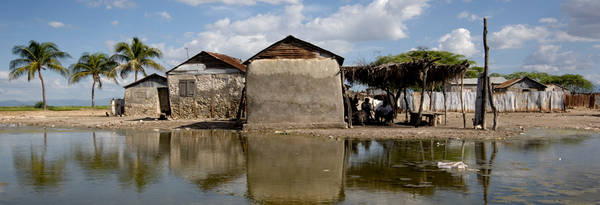 The history of our constantly evolving planet, which formed around 4.5 billion years ago, has seen many great biological and geological events. “Epochs” reflect noteworthy episodes along the Earth`s geological time scale with the shift from one to another epoch being marked by global events that change the history of the earth in fundamental ways, like a major change in climate regime, tectonics and volcanism or by the mass extinction of species.one recent and noteworthy event dates back only about 11,500 years when the retreat of the glaciers made way for the present interglacial period called the Holocene, creating much of the surficial geology which humankind lives and relies upon – like soils in the crop growing regions of the Earth, deltas and river deposits. While humans and their ancestors have influenced the environment in many ways for some million years, their impact becomes much more extensive during the most recent part of the Holocene. In this regard, the second half of the 20th Century is still more exceptional in our human history, with a shift from rural to a highly urban population, fueled during the “green revolution” by industrial agriculture – using fertilisers, pumped water, pesticides, mechanisation, and particularly the use of fossil fuels. A great number of human activities have seen their kickoff points within this time and reached an arguably extreme acceleration at the beginning of the 21st Century.
The history of our constantly evolving planet, which formed around 4.5 billion years ago, has seen many great biological and geological events. “Epochs” reflect noteworthy episodes along the Earth`s geological time scale with the shift from one to another epoch being marked by global events that change the history of the earth in fundamental ways, like a major change in climate regime, tectonics and volcanism or by the mass extinction of species.one recent and noteworthy event dates back only about 11,500 years when the retreat of the glaciers made way for the present interglacial period called the Holocene, creating much of the surficial geology which humankind lives and relies upon – like soils in the crop growing regions of the Earth, deltas and river deposits. While humans and their ancestors have influenced the environment in many ways for some million years, their impact becomes much more extensive during the most recent part of the Holocene. In this regard, the second half of the 20th Century is still more exceptional in our human history, with a shift from rural to a highly urban population, fueled during the “green revolution” by industrial agriculture – using fertilisers, pumped water, pesticides, mechanisation, and particularly the use of fossil fuels. A great number of human activities have seen their kickoff points within this time and reached an arguably extreme acceleration at the beginning of the 21st Century.
The list of human activities and their impact on the water systems of the planet are long and important. We have accelerated major processes (e.g., erosion, nitrogen applied to the landmass) while decelerating others (e.g., loss delivery of river water and sediments to the world’s ocean). in our quest for human security we have harnessed enormous amounts of fossil energy, dammed major river ways, destroyed aquatic ecosystems and their resident biota, and altered the Earth’s climatology, chemistry, snow cover, permafrost, sea ice extent, glacial ice extent, ocean volume—all elements of the hydrological cycle. this very short time period may represent the beginning of a new geological epoch, the Anthropocene, representing the rapid alteration of the human relationship with the natural world in the history of our species, so that today we can call humankind a global force in its own right.
The term anthropocene reflects the increasing predominance of humankind in bringing about global environmental change. It suggests that the impacts of human activities must now be considered of global significance for future evolution of all living species – including ourselves. From a research position, it means that the human-water interactions must be viewed as a continuum and coupled system, requiring interdisciplinary inquiry like that which has characterized the GWSP since its inception.
Water plays a central role in all processes and activities supporting both humans and ecosystems. the existence and development of human beings in the Earth system depends on the storage and circulation of water – as liquid, vapor or ice – through biochemical cycles and a hydrological cycle fueled by the sun. Food, energy and other ecosystem services for humans and nature are all connected through multiple interactions and feedbacks within what is increasingly recognized as a global water system. a central tenet of the GWSP has been that humans are changing the character of this water system in globally significant ways without adequate knowledge about the system or its change. By diverting freshwater for agricultural, industrial and municipal use, our coastal wetlands are receiving less and less, and often polluted, freshwater.
As a result we have decreased inland and coastal biodiversity, increased coastal salinity and temperature as well as contaminated agricultural soils and agricultural runoff . Many of the world’s densely populated and heavily farmed deltas are becoming increasingly vulnerable to floods as a result of accelerated relative sea level rise caused by the disruption of sediment balance in deltas—this in turn arising from the diversion of changing the history of the Earth: the Role of Water in the anthropocene.
By James Svitski, Charles Vörösmarty, Sina Marx & Anik Bhaduri
This article is also to be found in our newsletter – Global Water News No 12.